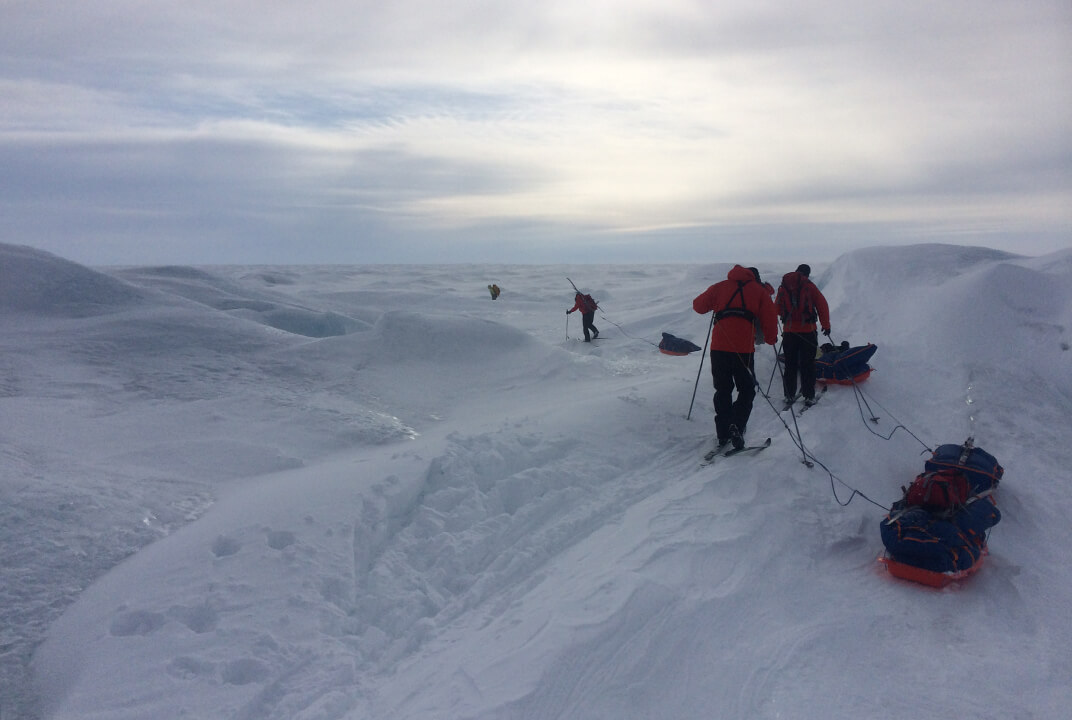65 Degrees North team sets sights on Antarctica
Two wounded military veterans are set to tackle the highest peak in Antarctica to prove there is life beyond injury, and inspire others to follow their lead.
Inmarsat is supporting the 65 Degrees North (65DN) team with essential satellite communications kit as they take on 16,050ft (4,892m) Mount Vinson in one of the world’s toughest and most remote environments.
Former Royal Marines Danny Claricoates and James ‘Flo’ Nightingale will climb alongside three serving and ex-servicemen who have wide-ranging experience of extreme challenges.
Debilitating injuries
The two men returned from tours of Afghanistan with different but equally debilitating injuries. James, who was awarded the Queen’s Commendation for Bravery, has only recently come to the end of six years of surgical reconstruction after he was shot in the face. Danny’s wounds are not visible; he suffered post-traumatic stress disorder (PTSD) after the vehicle he was travelling behind was blown up, killing fellow commandos.
Inmarsat has supplied the team, who plan to set out on 5 January, with essential safety and communications equipment: a lightweight BGAN terminal, two rugged IsatPhone 2 satellite phones, and a compact IsatHub terminal to use with their own smart devices.
Despite being at the bottom of the world, this will enable them to call for help in an emergency or seek medical assistance. They will be able to stay in close contact with 65DN HQ in the UK, and send photos, video and updates for their social media platforms, and even take part in live media interviews.
Taboo subject
65 Degrees North was started in 2014 to help in the rehabilitation of wounded or damaged ex-servicemen and women by offering them the opportunity to participate in extreme challenges.
Through this spirit of adventure, it aims to change the perception of mental and physical disability. The Antarctica expedition will also raise funds for The Royal Marines Charity.
Danny said: “Mental health is still a taboo subject, people just do not want to talk about it and I hope that by sharing my own personal experiences I can help others. It is vital to break down the barriers and de-stigmatise the condition so sufferers can seek early diagnosis and treatment.
“Engaging with 65DN has given me the opportunity to come to terms with the end of being a service man, and move on from that part of my life. Taking part in adventurous challenge and overcoming adversity gives me the confidence that, despite my injuries, I can achieve anything!”

